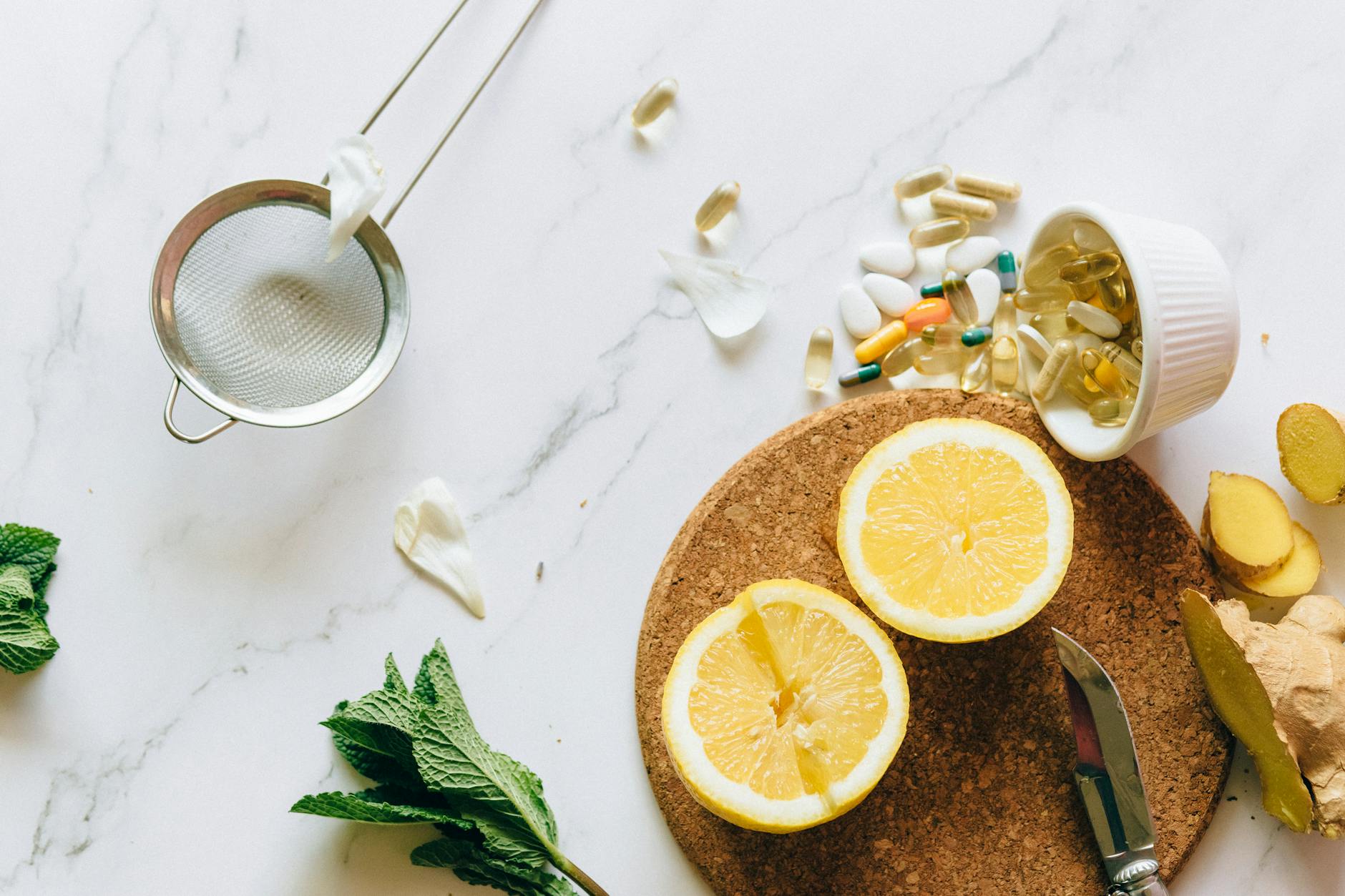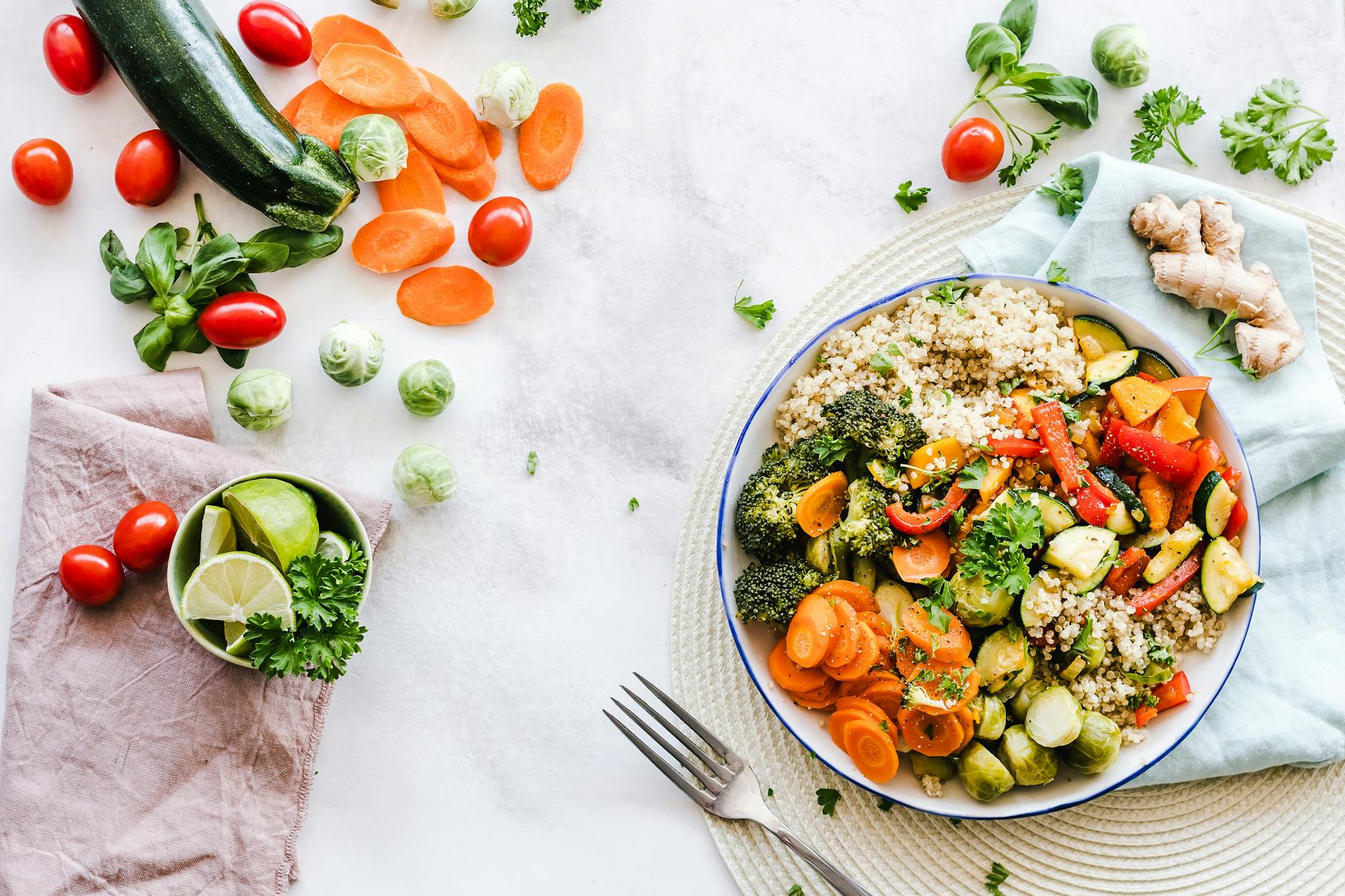Immunity Boosting Supplements:
In a world where health concerns dominate headlines, maintaining a robust immune system has never been more crucial. As we navigate through the summer of 2025, the lessons from recent years have taught us that immunity isn’t just about surviving flu season—it’s about thriving year-round. For older Americans especially, who account for 70-85% of flu-related deaths annually, immune health represents not just wellness but survival. But here’s the reality: despite our best intentions, many of us fall short on essential immune-supporting nutrients through diet alone.
The challenge intensifies when we consider the overwhelming array of supplements claiming to be immunity miracle workers. Which ones actually work? Are vitamins C and D enough? What about zinc? While no supplement can cure diseases (an important disclaimer!), emerging research suggests that strategic supplementation—alongside proper nutrition, adequate sleep, regular exercise, and vaccination—forms a powerful defense system against illness. Whether you’re concerned about seasonal viruses or looking for long-term immune resilience, understanding which supplements truly support your body’s natural defenses can make all the difference.
In this comprehensive guide, we’ll explore the foundations of immune health, essential nutrients your immune system craves, dietary approaches that naturally enhance immunity, evidence-based supplement options, lifestyle factors that complement supplementation, and prevention strategies including vaccination. By the end, you’ll have a clear roadmap to navigate the complex world of immunity support in 2025 and beyond. 💪🛡️
Understanding Immune Health and Its Importance

How the immune system works and why it matters
Your immune system isn’t just one thing—it’s a complex network of cells, tissues, and organs working around the clock to defend your body against invaders. Think of it as your personal army fighting off bacteria, viruses, parasites, and other unwanted guests.
When something harmful enters your body, your immune system springs into action. First, your skin and mucous membranes act as physical barriers. If these barriers are breached, specialized white blood cells rush to the scene to destroy the intruders. Some of these cells even remember past infections, allowing them to respond more quickly if the same threat returns.
This matters because when your immune system functions properly, you stay healthy. When it doesn’t, you get sick—sometimes seriously. And it’s not just about avoiding the common cold. Your immune system also helps detect and destroy abnormal cells that could become cancerous, and it plays a crucial role in healing wounds.
Heightened risks for older adults (65+) during flu season
Getting older comes with wisdom and experience, but unfortunately, it also means your immune system isn’t as robust as it once was. After 65, your body produces fewer immune cells, and the ones you have don’t communicate as effectively.
During flu season, this decline hits hard. While a younger person might bounce back from the flu in a week, older adults often face:
- Longer recovery times
- Higher risk of hospitalization
- Greater chance of developing complications like pneumonia
- Increased mortality rates
The numbers don’t lie—about 70-85% of seasonal flu-related deaths occur in people 65 and older. And roughly 50-70% of flu-related hospitalizations happen in this age group.
What makes this worse? Many older adults already have underlying health conditions that further compromise their ability to fight off infections.
The connection between immune health and chronic conditions
Your immune system and chronic health conditions have a complicated relationship—they influence each other in ways that can create vicious cycles.
Conditions like diabetes, heart disease, and autoimmune disorders can weaken your immune response. At the same time, a poorly functioning immune system can worsen these conditions.
Take diabetes, for example. High blood sugar impairs immune cell function, making infections more likely. Then when you get sick, your blood sugar becomes even harder to control, creating a downward spiral.
Or consider autoimmune diseases like rheumatoid arthritis. Here, your immune system is actually too active—but in the wrong way. It attacks your own body tissues instead of protecting them. The medications used to control these conditions often suppress the immune system, making you more vulnerable to infections.
Chronic stress, poor sleep, and inadequate nutrition—common companions to chronic illness—further depress immune function. This explains why people with chronic conditions often catch every bug going around and take longer to recover.
Essential Vitamins and Nutrients for Immune Support

Vitamin D: Benefits and recommended intake
Ever wonder why you feel better after some sunshine? That’s your body making vitamin D, and it’s a superstar for your immune system.
Vitamin D helps your body create antimicrobial proteins that literally punch holes in bacteria and viruses. Pretty cool, right? It also keeps your immune cells talking to each other properly, which is crucial when your body’s fighting off an invader.
Most adults need about 600-800 IU daily, but many of us are walking around deficient. If you live somewhere cloudy, work indoors, or have darker skin, you’re at higher risk.
Here’s what you need to know about getting enough:
- Sunshine: 10-30 minutes of midday sun several times weekly
- Food sources: Fatty fish, egg yolks, mushrooms, fortified foods
- Supplements: D3 is typically better absorbed than D2
Low vitamin D levels have been linked to increased susceptibility to infections, so this isn’t one to ignore.
Vitamin C: How it strengthens immune function
Vitamin C isn’t just for when you feel a cold coming on. Your immune system needs it daily.
This powerful vitamin boosts the production of white blood cells – the fighters that take down infections. It also helps these cells function more effectively and protects them from damage.
Your body can’t make or store vitamin C, so you need fresh supplies daily. Most adults need 75-90mg per day.
What vitamin C actually does:
- Strengthens your skin barrier (your first line of defense)
- Promotes wound healing
- Acts as an antioxidant, protecting cells from damage
- May shorten duration of colds by 8-14%
You’ll find it in citrus fruits, bell peppers, strawberries, broccoli, and kiwi. One orange or cup of chopped red pepper exceeds your daily needs.
If you’re supplementing, don’t go crazy – your body can only absorb so much at once, and mega-doses won’t provide extra benefits.
Zinc: Role in immune response and food sources
Zinc doesn’t get the spotlight like vitamins C and D, but it’s working behind the scenes as your immune system’s stage manager.
This mineral helps your body make new immune cells and helps existing ones communicate effectively. When you’re zinc-deficient, your infection risk skyrockets.
Adults need 8-11mg daily, but up to 40% of older adults may be deficient.
The best food sources include:
| Food | Zinc Content |
|---|---|
| Oysters | 32mg per 6 oysters |
| Beef | 7mg per 3oz serving |
| Crab | 6.5mg per 3oz serving |
| Pumpkin seeds | 2.2mg per ounce |
| Yogurt | 1.7mg per cup |
Zinc lozenges might help shorten colds when taken within 24 hours of symptoms, but don’t take zinc supplements long-term without talking to your doctor – it can interfere with copper absorption and immune function.
Other beneficial nutrients and antioxidants
Your immune system doesn’t run on just three nutrients – it needs a whole team.
Vitamin E works as an antioxidant, protecting your cells from damage. Found in nuts, seeds, and leafy greens, it helps T-cells (your immune system’s special forces) function properly.
Vitamin B6 supports biochemical reactions in your immune system. Without enough, your body makes fewer antibodies. You need about 1.3-1.7mg daily from foods like chicken, salmon, tuna, chickpeas, and potatoes.
Selenium helps lower oxidative stress, reducing inflammation and enhancing immunity. Just one Brazil nut provides your daily requirement.
Quercetin, found in apples, onions, and green tea, has both antiviral and antimicrobial properties.
Curcumin from turmeric is a powerful anti-inflammatory that helps regulate immune cell function.
While focusing on individual nutrients helps, the real magic happens when you eat a variety of whole foods. The compounds work together, creating immune-supporting effects greater than what any single supplement can provide.
Dietary Approaches to Boost Immunity

Rainbow Diet: Importance of Colorful Fruits and Vegetables
Think your plate should look like an artist’s palette? You’re absolutely right.
Those vibrant colors in fruits and vegetables aren’t just pretty to look at – they’re packed with different immune-boosting compounds called phytonutrients. Each color brings its own special superpower to your immunity game.
Red foods like tomatoes and watermelon contain lycopene, which helps fight off those nasty free radicals. Orange and yellow options? They’re loaded with vitamin C and beta-carotene – crucial players in keeping your immune cells firing on all cylinders.
Green veggies (yes, the ones your mom always nagged you about) are immunity gold mines. They’re packed with folate, carotenoids, and vitamin K. And those purple foods? The deep colors come from anthocyanins – powerful antioxidants that reduce inflammation and boost immune response.
Try this simple approach: aim for at least five different colors on your plate each day. Your immune system will thank you.
Protein Sources That Support Immune Function
Your body needs protein to build and repair tissues – including those critical immune cells. Without enough protein, your immunity basically waves a white flag.
Some protein sources pack extra immune benefits:
- Fish: Especially fatty varieties like salmon and mackerel, loaded with omega-3s that reduce inflammation
- Eggs: Contains zinc, selenium and vitamin D – the immunity trifecta
- Greek yogurt: Probiotics + protein = immune system happy dance
- Chicken: Provides B vitamins along with zinc, helping your body produce those disease-fighting antibodies
- Beans and lentils: Plant protein with zinc and iron, plus fiber that feeds your gut’s good bacteria
Most people need about 0.8g of protein per kg of body weight daily – more if you’re very active or older.
Anti-inflammatory Foods and Their Benefits
Chronic inflammation is like having your immune system stuck in overdrive – it’s exhausting and counterproductive.
Anti-inflammatory foods help calm this response, allowing your immunity to work more efficiently. Here are the superstars:
- Fatty fish: The omega-3s in salmon, sardines and mackerel are inflammation-fighting champions
- Berries: Those tiny blueberries and strawberries pack major anti-inflammatory punch
- Turmeric: Contains curcumin, which reduces inflammation markers in your body
- Green tea: Loaded with EGCG, a compound that inhibits inflammatory responses
- Olive oil: The oleocanthal component works similarly to ibuprofen (but tastes way better)
Inflammation fighters work best as a team. Combining turmeric with black pepper boosts absorption by 2000%. A drizzle of olive oil on berries? That’s anti-inflammatory magic.
When Diet Alone May Not Be Sufficient
Sometimes your diet needs backup, no matter how colorful your plate. Certain situations call for supplement support:
- Seasonal changes: Winter months mean less sun exposure and vitamin D production
- Age factors: As we age, our bodies absorb fewer nutrients from food
- Restricted diets: Vegetarians and vegans may need B12 supplements
- Stress overload: Chronic stress depletes your nutrient reserves faster
- Illness recovery: Your body needs extra immune support when fighting infections
Blood tests can reveal specific deficiencies. Rather than guessing, work with a healthcare provider to identify what your unique immune system actually needs.
The quality of supplements matters enormously. Look for third-party tested products from reputable brands – your immune system deserves better than mystery ingredients.
Supplement Options and Efficacy

Evidence-based immune-boosting supplements
Looking for supplements that actually work? Not all immune boosters are created equal. The research points to several standouts:
Vitamin C: The classic immune supporter. While it might not prevent colds entirely, studies show it can reduce their duration by 8-14% in most people. During illness, your body burns through vitamin C faster, making supplementation particularly helpful.
Vitamin D: Often overlooked but crucial. About 42% of Americans are deficient, and low levels are linked to increased infection risk. The evidence is strong—vitamin D receptors exist in immune cells, directly influencing immune function.
Zinc: A true immune powerhouse. It helps develop immune cells and acts as an antioxidant. Research shows zinc lozenges can cut cold duration by 33% when taken within 24 hours of symptoms.
Elderberry: This traditional remedy has modern science backing it up. Studies demonstrate it can reduce upper respiratory symptoms and may shorten flu duration by up to 4 days.
Probiotics: These beneficial bacteria don’t just help digestion—they’re immune modulators too. Specific strains like Lactobacillus and Bifidobacterium have been shown to reduce respiratory infection frequency and duration.
Quercetin: This plant flavonoid has impressive anti-inflammatory and antiviral properties, working synergistically with vitamin C to enhance absorption and effectiveness.
Proper dosing and potential interactions
Taking immune supplements isn’t a “more is better” situation. The dosing sweet spot matters:
Vitamin C: 200-2000mg daily is typically effective. Your body can only absorb about 200-400mg at once, so split higher doses throughout the day. Megadosing (3000mg+) just gives you expensive urine and potential diarrhea.
Vitamin D: 1000-4000 IU daily works for most adults, but blood testing is the only way to know your personal needs. Fat-soluble vitamins stick around, so don’t overdo it.
Zinc: Stay under 40mg daily for long-term use. Excess zinc can actually suppress immune function and block copper absorption. Those lozenges I mentioned? Don’t use them for more than two weeks.
Watch for these common interactions:
- Zinc reduces antibiotic and certain medication absorption if taken simultaneously
- Elderberry may amplify immunosuppressants and shouldn’t be taken with diabetes medications
- Many supplements affect blood thinners like warfarin
Timing matters too. Take vitamin D with fatty foods for better absorption. Space zinc away from copper supplements or high-copper foods by at least two hours.
Limitations of supplements: What they can and cannot do
Supplements aren’t magic bullets. Understanding their limitations keeps expectations realistic.
What supplements CAN do:
- Fill nutritional gaps when diet falls short
- Support normal immune function (not supercharge it)
- Help reduce severity and duration of illness when already sick
- Provide targeted support for specific immune pathways
What supplements CANNOT do:
- Replace a nutrient-dense diet and healthy lifestyle
- Provide immediate protection against infections
- Cure existing conditions or diseases
- Compensate for chronic sleep deprivation, excessive stress, or sedentary habits
The immune system is incredibly complex—no single supplement addresses all its components. That “immune booster” claiming to “strengthen your immune system” is oversimplifying. Sometimes you actually need immune modulation, not boosting, especially with autoimmune conditions.
Remember: supplements work best as part of a comprehensive approach. They complement good nutrition, adequate sleep, stress management, and regular exercise—they don’t replace these foundations.
Quality considerations when selecting supplements
Not all supplements deserve space in your cabinet. The FDA doesn’t review supplements before they hit shelves, so quality assurance falls on you.
Look for these quality markers:
- Third-party testing by organizations like USP, NSF, or ConsumerLab
- Good Manufacturing Practices (GMP) certification
- Transparent labeling that clearly states active ingredients and amounts
- Bioavailable forms like methylcobalamin (B12), zinc citrate/picolinate, or vitamin D3 (not D2)
Avoid supplements with:
- Proprietary blends that hide exact amounts
- Excessive fillers, artificial colors, and preservatives
- Outrageous claims that sound too good to be true
- Extremely cheap prices (quality ingredients cost money)
Form matters too. Liposomal vitamin C has better absorption than standard forms. Probiotic supplements need proper encapsulation to survive stomach acid. Zinc lozenges work locally in the throat, while zinc capsules support systemic immunity.
Don’t fall for marketing hype. That fancy “immune support complex” with 30 ingredients often contains too little of each to be effective. Sometimes simpler, targeted supplementation based on your specific needs yields better results than kitchen-sink formulas.
Storage affects potency too. Keep probiotics refrigerated, protect fish oil from light and heat, and check expiration dates regularly.
Lifestyle Factors That Enhance Immunity

Exercise: Type, Duration, and Immune Benefits
Want to know one of the most effective immunity supplements that’s completely free? It’s exercise. Regular physical activity isn’t just for building muscle or losing weight – it’s a powerful immunity booster.
When you exercise, your body increases circulation of immune cells, making them more efficient at detecting and fighting off infections. But not all exercise impacts your immune system the same way.
Moderate-intensity activities like brisk walking, cycling, or swimming for 30-45 minutes most days deliver the biggest immune benefits. This “Goldilocks zone” of exercise stimulates immune function without overwhelming your body.
High-intensity workouts have their place too, but going too hard for too long can temporarily suppress immunity. That’s why marathon runners often catch colds after races.
Here’s a quick breakdown of exercise types and their immune effects:
| Exercise Type | Duration | Immune Benefits |
|---|---|---|
| Moderate aerobic (walking, jogging) | 30-45 min, 5x/week | Optimal immune cell circulation, reduced inflammation |
| Strength training | 20-30 min, 2-3x/week | Enhanced immune surveillance, better stress regulation |
| HIIT workouts | 15-25 min, 2-3x/week | Improved immune response when not overdone |
| Yoga/Tai Chi | 30+ min, 2-3x/week | Reduced stress hormones, better immune balance |
The secret is consistency over intensity. A daily 30-minute walk beats a once-weekly exhausting gym session for immune support every time.
Sleep Quality and Immune Function Connection
Your body does its most critical immune work while you’re sleeping. Skimp on those Zs, and you’re basically leaving your immune system understaffed and overworked.
During deep sleep, your body produces and releases cytokines – proteins that target infection and inflammation. Without enough quality sleep, production of these protective proteins drops, while stress hormones rise. It’s a double whammy against your immunity.
Research shows that people who sleep less than 6 hours a night are 4 times more likely to catch a cold compared to those who get 7+ hours. But it’s not just about duration – quality matters just as much.
Sleep stages matter too. Your body cycles through light, deep, and REM sleep throughout the night, with each phase playing unique roles in immune function. Deep sleep in particular is when your body performs cellular repair and immune memory consolidation.
Struggling to get quality sleep? Try these immune-supporting sleep habits:
- Keep consistent sleep/wake times (yes, even on weekends)
- Create a bedtime routine that signals “wind-down time” to your brain
- Make your bedroom cool (65-68°F), dark, and quiet
- Avoid screens 1-2 hours before bed (the blue light disrupts melatonin)
- Skip alcohol near bedtime – it might help you fall asleep but wrecks sleep quality
Stress Management Techniques for Immune Health
Chronic stress is like kryptonite for your immune system. When stress hormones like cortisol stay elevated for long periods, they suppress immune function, leaving you vulnerable to everything from common colds to more serious illnesses.
The stress-immunity connection explains why you often get sick during or right after high-stress periods. Your body literally can’t fight off invaders effectively when it’s constantly in “fight or flight” mode.
The good news? Even simple stress management techniques can reverse this effect. Here are techniques proven to boost immune function:
Mindfulness meditation has been shown to increase activity of natural killer cells – your body’s first line of defense. Just 10-15 minutes daily makes a difference.
Deep breathing exercises switch your nervous system from “fight or flight” to “rest and digest” mode in minutes. Try box breathing: inhale for 4 counts, hold for 4, exhale for 4, hold for 4. Repeat 5 times whenever stress hits.
Laughter isn’t just fun – it actually decreases stress hormones and increases immune cells. Queue up your favorite comedy when you’re feeling overwhelmed.
Social connection might be the most underrated stress buster. Quality time with friends and loved ones reduces stress hormones and boosts oxytocin, which has anti-inflammatory effects.
Nature exposure, even just 20 minutes in a park, significantly lowers cortisol levels and boosts natural killer cell activity.
Indoor Air Quality Improvements
The air inside your home could be secretly sabotaging your immune system. Indoor air is often 2-5 times more polluted than outdoor air, filled with allergens, VOCs from cleaning products, and other irritants that keep your immune system chronically activated.
This constant low-grade immune activation diverts resources away from fighting actual pathogens. It’s like having your security team constantly distracted by false alarms while the real threats slip through.
Simple changes to your indoor environment can dramatically boost immune function:
HEPA air purifiers capture 99.97% of airborne particles, including viruses, bacteria, mold spores, and allergens. Place them in bedrooms and main living areas for maximum benefit.
Houseplants do more than look pretty – many varieties actively filter common indoor pollutants. Spider plants, peace lilies, and snake plants are particularly effective air cleaners.
Regular ventilation, even in winter, helps flush out accumulated pollutants. Open windows on opposite sides of your home for 5-10 minutes daily to create cross-ventilation.
Humidity matters too – aim for 40-60% relative humidity. Too dry, and viral particles stay airborne longer; too humid, and mold thrives. A simple hygrometer can help you monitor levels.
Swap chemical cleaners for natural alternatives. Vinegar, baking soda, and essential oils like tea tree can clean effectively without the immune-disrupting chemicals found in conventional products.
Vacuum with a HEPA filter at least weekly to remove settled allergens and microbes from carpets and upholstery.
Vaccination and Prevention Strategies

A. Importance of seasonal flu vaccines for immune protection
When cold and flu season rolls around, your immune system needs all the help it can get. Seasonal flu vaccines are your frontline defense – not just a “nice to have” but a critical component of year-round immune protection.
Here’s the deal: each year, flu viruses evolve. That annual shot isn’t just healthcare bureaucracy – it’s updated specifically to target the most likely viral threats. Vaccination reduces your chance of getting sick by 40-60% in a typical season.
But there’s more to it than just avoiding a week of misery. Flu vaccines prevent serious complications that can land you in the hospital. They’re especially crucial if you’re immunocompromised, have chronic conditions, or are pregnant.
Think of vaccination as training camp for your immune system. Your body creates antibodies after getting the shot, so when the real virus shows up, your immune cells already know the playbook.
B. Special vaccine considerations for older adults (Fluad and Fluzone)
If you’re over 65, your immune system isn’t quite the powerhouse it once was. That’s why there are special flu vaccines designed specifically for you.
Fluad and Fluzone High-Dose aren’t just marketing gimmicks – they’re scientifically formulated to overcome age-related immune decline.
Fluzone High-Dose contains four times the antigen amount of regular flu shots. More antigen means stronger immune response. Studies show it’s 24% more effective at preventing flu in older adults than standard vaccines.
Fluad works differently. It contains an adjuvant (MF59) that creates a stronger immune response. Think of it as an immune system wake-up call that helps your body take the vaccine more seriously.
Your doctor might recommend one over the other based on your health history, but both offer significantly better protection than standard options.
C. Optimal timing for vaccination
Timing matters when it comes to flu shots. Get it too early, protection might wear off before flu season ends. Too late, and you’re vulnerable during peak transmission.
The sweet spot? Early to mid-fall, ideally by the end of October. This gives your body the 2 weeks needed to build full immunity before flu activity typically increases in November.
But don’t stress if you miss this window. Even January isn’t too late if flu is still circulating. Some protection is always better than none.
For older adults, some research suggests immunity might wane faster. If you’re concerned about this, talk to your doctor about optimal timing – they might recommend waiting until October rather than getting vaccinated in August.
D. Additional preventive measures (handwashing, social distancing)
Vaccines are powerful, but they’re just one piece of the immunity puzzle. Smart prevention strategies create multiple layers of protection.
Handwashing remains your MVP defense against germs. Not a quick rinse – we’re talking 20 seconds with soap, getting between fingers and under nails. This simple habit reduces respiratory illnesses by 16-21%.
Social distancing isn’t just a pandemic relic – it’s always been effective against airborne illness. During peak flu season, maybe reconsider that crowded indoor concert or give yourself extra personal space in waiting rooms.
Air quality matters too. Good ventilation dilutes airborne viruses, while HEPA filters can capture them. Open windows when weather permits or invest in air purifiers for high-traffic areas of your home.
Masks haven’t disappeared for good reason – they work. Consider wearing one in crowded indoor spaces during peak flu season, especially if you’re at higher risk or traveling.

Conclusion
Maintaining a strong immune system is an ongoing commitment that requires a multi-faceted approach. Throughout this article, we’ve explored the foundations of immune health, essential nutrients like vitamins C and D, and zinc that support immune function, and dietary strategies that provide these critical components naturally. While supplements can play a valuable role in filling nutritional gaps, they work best as part of a comprehensive wellness plan that includes proper nutrition, regular exercise, adequate sleep, and stress management.
Remember that no supplement can cure diseases or replace other preventive health measures. Vaccinations remain one of our most powerful tools against infectious illnesses, particularly for vulnerable populations such as adults over 65. As we navigate health challenges like seasonal flu and ongoing pandemic concerns, combining proven preventive strategies—including appropriate supplements, a nutrient-rich diet, regular physical activity, and proper hygiene practices—offers the strongest defense for your immune system. Consult with healthcare professionals before starting any new supplement regimen to ensure it’s appropriate for your individual health needs and circumstances.

